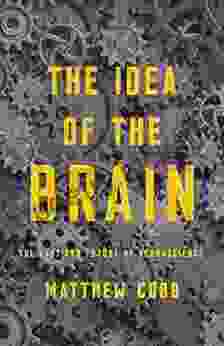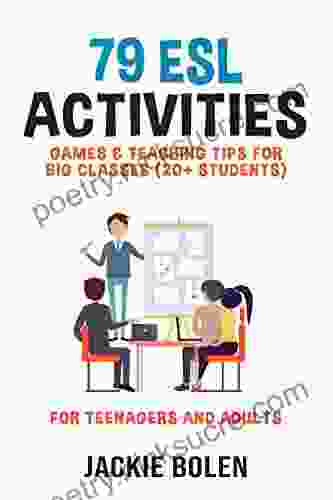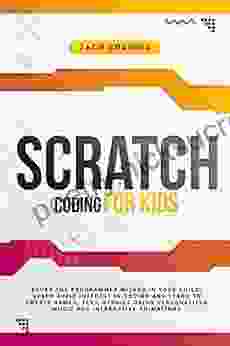The Idea of the Brain

The brain, the enigmatic organ housed within our skulls, is the seat of our thoughts, emotions, memories, and consciousness. Its intricate workings have captivated the scientific community for centuries, inspiring awe and wonder as we strive to unravel its mysteries. This article delves into the idea of the brain, exploring its multifaceted nature, complex functionalities, and the profound impact it has on our existence.
The brain is a highly organized and specialized organ, composed of billions of neurons interconnected by a vast network of synapses. It can be broadly divided into three main regions: the cerebrum, the cerebellum, and the brainstem.
- Cerebrum: The largest and most complex part of the brain, responsible for higher-order cognitive functions such as consciousness, language, reasoning, and memory.
- Cerebellum: Located at the back of the brain, the cerebellum plays a crucial role in motor coordination, balance, and posture.
- Brainstem: Connects the brain to the spinal cord, responsible for essential life-sustaining functions such as breathing, heart rate, and sleep-wake cycles.
The brain's functions are as diverse as its structure, encompassing a wide range of cognitive, emotional, and physiological processes. Some key functions include:
4.6 out of 5
| Language | : | English |
| File size | : | 26459 KB |
| Text-to-Speech | : | Enabled |
| Screen Reader | : | Supported |
| Enhanced typesetting | : | Enabled |
| X-Ray | : | Enabled |
| Word Wise | : | Enabled |
| Print length | : | 481 pages |
- Perception: The brain receives sensory information from the outside world through our senses, interpreting and processing it to create our perceptions of reality.
- Motor Control: Initiates and coordinates voluntary and involuntary movements, from simple reflexes to complex motor skills.
- Memory: The brain stores and retrieves information, forming the basis of our memories and experiences.
- Emotion: The brain generates and regulates emotions, influencing our behavior, motivation, and well-being.
- Language: The brain processes and produces language, allowing us to communicate with others.
- Decision-Making: The brain evaluates available information, weighs options, and makes choices that influence our actions.
One of the most fascinating aspects of the brain is its role in consciousness, the subjective experience of our own existence. Despite significant research, the exact nature of consciousness remains elusive, with philosophers and scientists proposing various theories to explain this enigmatic phenomenon.
- Emergentist Theory: Consciousness emerges as a result of the complex interactions between billions of neurons in the brain.
- Dualist Theory: Consciousness is a separate entity from the physical brain, interacting with it in an unexplained manner.
- Integrated Information Theory: Consciousness is a fundamental property of complex systems that can integrate and process information.
The brain is remarkably plastic, capable of adapting and changing throughout our lives. This neuroplasticity allows us to learn new skills, form new memories, and recover from brain injuries.
- Experience-Dependent Plasticity: The brain modifies its connections and structures based on experiences, shaping our behavior and cognitive abilities.
- Neurogenesis: New neurons can form in certain regions of the brain, particularly during early development and in response to certain stimuli.
The brain's complex interplay of biological and psychological processes can lead to various mental health conditions. Understanding the brain's involvement in mental health is crucial for diagnosis and treatment.
- Mood Disorders: Disorders such as depression and bipolar disorder involve disturbances in neurotransmitter levels and brain circuits related to mood regulation.
- Anxiety Disorders: Anxiety-related conditions like generalized anxiety disorder and obsessive-compulsive disorder are associated with hyperactivity in certain brain regions.
- Psychotic Disorders: Schizophrenia and other psychotic disorders involve disruptions in brain functions that affect perception, thinking, and behavior.
The idea of the brain is a vast and ever-evolving field of study, filled with both wonder and unanswered questions. As our understanding of this extraordinary organ continues to deepen, we gain new insights into our own nature and the immense potential of the human mind. From its intricate structure to its multifaceted functions, the brain remains a testament to the complexity and marvels of biological creation.
4.6 out of 5
| Language | : | English |
| File size | : | 26459 KB |
| Text-to-Speech | : | Enabled |
| Screen Reader | : | Supported |
| Enhanced typesetting | : | Enabled |
| X-Ray | : | Enabled |
| Word Wise | : | Enabled |
| Print length | : | 481 pages |
Do you want to contribute by writing guest posts on this blog?
Please contact us and send us a resume of previous articles that you have written.
 Fiction
Fiction Non Fiction
Non Fiction Romance
Romance Mystery
Mystery Thriller
Thriller SciFi
SciFi Fantasy
Fantasy Horror
Horror Biography
Biography Selfhelp
Selfhelp Business
Business History
History Classics
Classics Poetry
Poetry Childrens
Childrens Young Adult
Young Adult Educational
Educational Cooking
Cooking Travel
Travel Lifestyle
Lifestyle Spirituality
Spirituality Health
Health Fitness
Fitness Technology
Technology Science
Science Arts
Arts Crafts
Crafts DIY
DIY Gardening
Gardening Petcare
Petcare Mordecai Orimiladeye
Mordecai Orimiladeye Peter L Falkingham
Peter L Falkingham Lisa Manterfield
Lisa Manterfield James F Twyman
James F Twyman Gwen Mckee
Gwen Mckee Ray Moynihan
Ray Moynihan Dr Sarita Uhr
Dr Sarita Uhr Joey Myers
Joey Myers Skeleton Steve
Skeleton Steve Joyce Meyer
Joyce Meyer Ellen Painter Dollar
Ellen Painter Dollar Worley Faver
Worley Faver Sam Demas
Sam Demas John Gignilliat
John Gignilliat Bren Smith
Bren Smith Omari Bouknight
Omari Bouknight Illysa R Foster
Illysa R Foster Dannah Gresh
Dannah Gresh Finn Aagaard
Finn Aagaard Christine Field
Christine Field Prime Hall
Prime Hall Philip Reed
Philip Reed Peter Wacht
Peter Wacht Julie Plagens
Julie Plagens Dave Canterbury
Dave Canterbury Creative Guy
Creative Guy Sherry B Ortner
Sherry B Ortner Linda Lewis Alexander
Linda Lewis Alexander Barb Musick
Barb Musick Steve Grant
Steve Grant Neel Doshi
Neel Doshi Anna Wood
Anna Wood Pradeepa Narayanaswamy
Pradeepa Narayanaswamy Bert Mendelson
Bert Mendelson Robin Esrock
Robin Esrock Robert Gerver
Robert Gerver George James Grinnell
George James Grinnell Sally Annjanece Stevens
Sally Annjanece Stevens Kennedy Achille
Kennedy Achille Sparknotes
Sparknotes Mark Mckinney
Mark Mckinney Sajni Patel
Sajni Patel Ling Seto
Ling Seto Christelle Dabos
Christelle Dabos Kass Morgan
Kass Morgan Dr Harper
Dr Harper Gloria Chadwick
Gloria Chadwick Mike Roberts
Mike Roberts Jacqueline Winslow
Jacqueline Winslow Kathy Morey
Kathy Morey Quinn Loftis
Quinn Loftis Zach Hunter
Zach Hunter John Dunn
John Dunn Earl Hipp
Earl Hipp Joe Hyams
Joe Hyams Chris Bailey
Chris Bailey Julian Of Norwich
Julian Of Norwich Roy M Wallack
Roy M Wallack Patrick Torsell
Patrick Torsell Jill Lepore
Jill Lepore Ken Robinson
Ken Robinson Christine Hopfgarten
Christine Hopfgarten Harley Mcallister
Harley Mcallister Nelson Dellis
Nelson Dellis Roger Hall
Roger Hall Susan G Solomon
Susan G Solomon Kristina Cowan
Kristina Cowan Margaret Jean Langstaff
Margaret Jean Langstaff Douglas Perry
Douglas Perry Jonathan Franklin
Jonathan Franklin Stephen Tarsitano
Stephen Tarsitano Peter Hathaway Capstick
Peter Hathaway Capstick William P Young
William P Young Marjorie Savage
Marjorie Savage Martin Meredith
Martin Meredith Mikael Lindnord
Mikael Lindnord Howard Means
Howard Means Justine Gregory Williams
Justine Gregory Williams Steve Schwartz
Steve Schwartz Lily Dunn
Lily Dunn Hope Comerford
Hope Comerford Melanie Dickerson
Melanie Dickerson Elizabeth Wissner Gross
Elizabeth Wissner Gross Randy J Paterson
Randy J Paterson Ellen Dugan
Ellen Dugan Sandy Bodeau
Sandy Bodeau Sukhveer Singh
Sukhveer Singh Darryl Belfry
Darryl Belfry L Chapman
L Chapman Julie Creffield
Julie Creffield Mike Reilly
Mike Reilly Sean Bartram
Sean Bartram Mishka Shubaly
Mishka Shubaly Tara Haelle
Tara Haelle Stuart Tomlinson
Stuart Tomlinson John Pullen
John Pullen J Scott Long
J Scott Long David Woods
David Woods Louis Van Dyke
Louis Van Dyke Bob Madgic
Bob Madgic Arcturus Publishing
Arcturus Publishing Michael Burnett
Michael Burnett Rutger Bregman
Rutger Bregman Matthew Cobb
Matthew Cobb Neal Shusterman
Neal Shusterman Vladimir Vasiliev
Vladimir Vasiliev Noel D Justice
Noel D Justice Melvin Fitting
Melvin Fitting Michael Tan
Michael Tan W W Sawyer
W W Sawyer Christopher T Coughlin
Christopher T Coughlin Barry Schwartz
Barry Schwartz Nancy Marie White
Nancy Marie White Michael F Nenes
Michael F Nenes Horace Kephart
Horace Kephart Steve Olson
Steve Olson Jenn Bennett
Jenn Bennett Antonio Robert
Antonio Robert Les Livingstone
Les Livingstone Luke Schumacher
Luke Schumacher Winton Porter
Winton Porter R A Salvatore
R A Salvatore Michael Hodgson
Michael Hodgson R K Agarwal
R K Agarwal Timothy Ellis
Timothy Ellis Claire Walter
Claire Walter Wayne C Booth
Wayne C Booth Christina Henry De Tessan
Christina Henry De Tessan June Hur
June Hur Anna Watson
Anna Watson Geryn Childress
Geryn Childress Holly Chism
Holly Chism Carl Mckeating
Carl Mckeating Bethany Saltman
Bethany Saltman Paul Bloom
Paul Bloom Karen Bassie Sweet
Karen Bassie Sweet Peter Richmond
Peter Richmond Rick Sparkman
Rick Sparkman Illustrated Edition Kindle Edition
Illustrated Edition Kindle Edition Darcie Little Badger
Darcie Little Badger Wendy Leo Smith
Wendy Leo Smith Lizzie Collingham
Lizzie Collingham Katharine Beals
Katharine Beals Tim Cahill
Tim Cahill Gilbert J Grant Md
Gilbert J Grant Md Charles J Sanders
Charles J Sanders Johnny Chuong
Johnny Chuong Cb Droege
Cb Droege Brian Daccord
Brian Daccord Good Books
Good Books Craig Ramsay
Craig Ramsay G Norman Lippert
G Norman Lippert Barry Dainton
Barry Dainton Anna Quindlen
Anna Quindlen Jay Allan
Jay Allan Jenny Jacobs
Jenny Jacobs Harold Davis
Harold Davis Morton Manus
Morton Manus Dave Hughes
Dave Hughes Roy R Grinker
Roy R Grinker Frances Schultz
Frances Schultz Heidi Kreider
Heidi Kreider Barak A Bassman
Barak A Bassman Will Kurt
Will Kurt Daniel Isberner
Daniel Isberner Rick Page
Rick Page Kristen L Mauk
Kristen L Mauk Jennifer Dugan
Jennifer Dugan Cade Courtley
Cade Courtley Joshua Shifrin
Joshua Shifrin Michael G Manning
Michael G Manning Jemar Tisby
Jemar Tisby Linda K Miller
Linda K Miller Anna Bright
Anna Bright Peter Watson
Peter Watson Susan Spicer
Susan Spicer Janine Marsh
Janine Marsh Larry Semento
Larry Semento Emily J Taylor
Emily J Taylor Annette Burns
Annette Burns Ann Marie Brown
Ann Marie Brown Anna Lowenhaupt Tsing
Anna Lowenhaupt Tsing Julie A Ross
Julie A Ross Lisa Randall
Lisa Randall Richard A Ruth
Richard A Ruth Jennifer L Lopez
Jennifer L Lopez Freddy Silva
Freddy Silva Dan Vogel
Dan Vogel Henry Dillon
Henry Dillon Horace Freeland Judson
Horace Freeland Judson Chris Gore
Chris Gore Sarah Stodola
Sarah Stodola Bob Labbe
Bob Labbe E R Truitt
E R Truitt David Soucie
David Soucie Isaac Fitzsimons
Isaac Fitzsimons Margaret Rogerson
Margaret Rogerson Zena Hitz
Zena Hitz Ariel Dalfen
Ariel Dalfen Robert A Conover
Robert A Conover Fumio Sasaki
Fumio Sasaki Lane Demas
Lane Demas Charlene Beswick
Charlene Beswick Annaka Harris
Annaka Harris Bella Forrest
Bella Forrest Mark Matlock
Mark Matlock Sean Covey
Sean Covey Adil E Shamoo
Adil E Shamoo Chic Scott
Chic Scott Breeda Bermingham
Breeda Bermingham Jackson Carter
Jackson Carter Sara Dyer
Sara Dyer Daphne Poltz
Daphne Poltz Christopher Seddon
Christopher Seddon Nicholas Thomas
Nicholas Thomas Zoe Moore
Zoe Moore Genevieve Mckay
Genevieve Mckay Marie Cirano
Marie Cirano Ann Zaprazny
Ann Zaprazny M Terese Verklan
M Terese Verklan Bernard Stiegler
Bernard Stiegler Jenna Evans Welch
Jenna Evans Welch Aaron Mahnke
Aaron Mahnke George Lakoff
George Lakoff Scott Shupe
Scott Shupe John O Sullivan
John O Sullivan Philip Gibson
Philip Gibson Dave Whitlock
Dave Whitlock Steven Yellin
Steven Yellin Todd Radom
Todd Radom Dorothy Ours
Dorothy Ours Richard Appleton
Richard Appleton M Shawn Copeland
M Shawn Copeland Rebecca Carroll
Rebecca Carroll Susan M Schneider
Susan M Schneider Tim Young
Tim Young Chase Hassen
Chase Hassen Annabel Streets
Annabel Streets Ann Mccallum Staats
Ann Mccallum Staats Anna B Doe
Anna B Doe Damian Hall
Damian Hall Glen E Clarke
Glen E Clarke James Burke
James Burke Julie C Meloni
Julie C Meloni Shawn Shallow
Shawn Shallow Zach Davis
Zach Davis Richard Mcafee
Richard Mcafee Dan Gardner
Dan Gardner Sally Black
Sally Black L J Smith
L J Smith Anne Sylvie Malbrancke
Anne Sylvie Malbrancke Stephen J Pyne
Stephen J Pyne Dave Hall
Dave Hall Crystal Cook
Crystal Cook C J Brown
C J Brown Charles Dickens
Charles Dickens Pierluigi Barrotta
Pierluigi Barrotta Jonathan Pd Buckley
Jonathan Pd Buckley Lily Siou
Lily Siou Maggie Downs
Maggie Downs John Baichtal
John Baichtal Julia Galef
Julia Galef Seth Stephens Davidowitz
Seth Stephens Davidowitz Barbara Sealock
Barbara Sealock Trevor Hartman
Trevor Hartman Marva Boatman
Marva Boatman Helen Adrienne
Helen Adrienne L A Cotton
L A Cotton Martin N Seif
Martin N Seif John Yates
John Yates Eric Greitens
Eric Greitens Caryl Phillips
Caryl Phillips Silvia M Lindtner
Silvia M Lindtner Emmett W Hines
Emmett W Hines Oskar Morgenstern
Oskar Morgenstern Sara Wickham
Sara Wickham William Goldman
William Goldman Richard C Schwartz
Richard C Schwartz Anna Crowley Redding
Anna Crowley Redding Michael Labossiere
Michael Labossiere Dean Buonomano
Dean Buonomano Jessa Stone
Jessa Stone Steve Newell
Steve Newell Stefanie Japel
Stefanie Japel Hanumant Deshmukh
Hanumant Deshmukh Stacey Williams
Stacey Williams Pawel Malczewski
Pawel Malczewski Elisabeth Haich
Elisabeth Haich Robert F Boszhardt
Robert F Boszhardt Becky Wade
Becky Wade Patricia Romanowski Bashe
Patricia Romanowski Bashe Kate Mcvaugh
Kate Mcvaugh Ralph Waldo Emerson
Ralph Waldo Emerson Alex Bromley
Alex Bromley Asker Jeukendrup
Asker Jeukendrup Tony Osgood
Tony Osgood Dante Fortson
Dante Fortson John Dickson
John Dickson Lexi Ryan
Lexi Ryan Donna D Ignatavicius
Donna D Ignatavicius Shelley Emling
Shelley Emling Maya Van Wagenen
Maya Van Wagenen Suzanne Clark
Suzanne Clark Curtis Collins
Curtis Collins Holly Bourne
Holly Bourne Guy Windsor
Guy Windsor Suzanne I Barchers
Suzanne I Barchers Caroline Miller
Caroline Miller Richard A Swanson
Richard A Swanson Sandy Camillo
Sandy Camillo Kendall Coyne
Kendall Coyne Frank Thomas
Frank Thomas Helge Kragh
Helge Kragh Hill Harper
Hill Harper Peyton Curley
Peyton Curley Victor Stringer
Victor Stringer Geoff Greig
Geoff Greig Scott Allan
Scott Allan Ray Eye
Ray Eye Ralph Cockburn
Ralph Cockburn Jean Barbre
Jean Barbre Stacey A Shannon
Stacey A Shannon Fox Fisher
Fox Fisher Katie Krimer Ma Lcsw
Katie Krimer Ma Lcsw Junior Health Institute
Junior Health Institute Matthew Rudy
Matthew Rudy Gary Chapman
Gary Chapman Buddy Lee
Buddy Lee Boye Lafayette De Mente
Boye Lafayette De Mente Julian Havil
Julian Havil L J Martin
L J Martin Randall Fitzgerald
Randall Fitzgerald Kalman Samuels
Kalman Samuels Adele Faber
Adele Faber Jacob Ward
Jacob Ward Clive Scarff
Clive Scarff H Jerome Chapman
H Jerome Chapman Shannon Vallor
Shannon Vallor James P Sethna
James P Sethna Cathy Glass
Cathy Glass Susan Straub
Susan Straub Margaret Paul
Margaret Paul Jeff Kuehl
Jeff Kuehl Dana James
Dana James Bob Cary
Bob Cary Kristian Berg
Kristian Berg Nicholas Clapp
Nicholas Clapp Eddie Jones
Eddie Jones Jay Young
Jay Young Todd Denault
Todd Denault Sally Connolly
Sally Connolly Steve Oldenburg
Steve Oldenburg Paulo Guillobel
Paulo Guillobel P M Gilbert
P M Gilbert Helen E Lees
Helen E Lees Vittal S Anantatmula
Vittal S Anantatmula Timothy P Schultz
Timothy P Schultz Anna Della Subin
Anna Della Subin Steven Munatones
Steven Munatones John Van Wyhe
John Van Wyhe Monroe Wildrose
Monroe Wildrose Tanmay Mehta
Tanmay Mehta Laurie Varga
Laurie Varga Steven A Fino
Steven A Fino Annalyn Ng
Annalyn Ng Ichigo Takano
Ichigo Takano Jay Spence
Jay Spence David Berry
David Berry Zach Codings
Zach Codings Nisha Garg
Nisha Garg Lori L Tharps
Lori L Tharps Larry Thornberry
Larry Thornberry Hannah Testa
Hannah Testa Ben Shneiderman
Ben Shneiderman Dan Koboldt
Dan Koboldt Angela Saini
Angela Saini C W Farnsworth
C W Farnsworth Matthew Locricchio
Matthew Locricchio Danny Jones
Danny Jones Sheela Raja
Sheela Raja Judy Corry
Judy Corry John Murray
John Murray James C Scott
James C Scott Melissa Mortenson
Melissa Mortenson Jack Perconte
Jack Perconte Ford R Bryan
Ford R Bryan Graham Robb
Graham Robb Steve Bennett
Steve Bennett Tyler Richards
Tyler Richards Miley Smiley
Miley Smiley Michael Witwer
Michael Witwer Robert A Cook
Robert A Cook Chronicle Books
Chronicle Books Valerie Hansen
Valerie Hansen J E Esslemont
J E Esslemont Sharon Rowley
Sharon Rowley Krista Marson
Krista Marson Alexander L Chapman
Alexander L Chapman Paul Logothetis
Paul Logothetis Naomi Tomky
Naomi Tomky Anna Grafl
Anna Grafl John Edwards
John Edwards Malcolm S Thaler
Malcolm S Thaler Jonathan R Brennan
Jonathan R Brennan Robby Weber
Robby Weber Bruce Lockwood
Bruce Lockwood Steven G Krantz
Steven G Krantz Stan Gibilisco
Stan Gibilisco H M Schey
H M Schey Ruby Mcconnell
Ruby Mcconnell Gill James
Gill James Anna Flores Locke
Anna Flores Locke Stephanie Cave
Stephanie Cave Thomas A Garrity
Thomas A Garrity Sean Purchase
Sean Purchase Jackie Bolen
Jackie Bolen Ian Moulding
Ian Moulding Suzanne Girard Eberle
Suzanne Girard Eberle Ann Valett
Ann Valett Ann Voskamp
Ann Voskamp Reinhard Kleist
Reinhard Kleist Chris Fregly
Chris Fregly James C Zimring
James C Zimring Stefan Hollos
Stefan Hollos Steven Callahan
Steven Callahan Tali Sharot
Tali Sharot Rebecca A Moyes
Rebecca A Moyes Louise Katz
Louise Katz Steve Bowkett
Steve Bowkett Joy Dawson
Joy Dawson Sharman Apt Russell
Sharman Apt Russell Livia Bitton Jackson
Livia Bitton Jackson Kyung Won Chung
Kyung Won Chung Patricia Ladis
Patricia Ladis Scott P Sells
Scott P Sells Gemma Bray
Gemma Bray Jason
Jason Josephine Mccarthy
Josephine Mccarthy College Hippo
College Hippo Lina Beard
Lina Beard Harnarayan Singh
Harnarayan Singh Paul Mendelson
Paul Mendelson Walter Mischel
Walter Mischel Joanna Wells
Joanna Wells The Pinnacle Review
The Pinnacle Review Tarani Chandola
Tarani Chandola Eleanor J Sullivan
Eleanor J Sullivan Mary E Pearson
Mary E Pearson Jennifer Kostick
Jennifer Kostick Anna Ivey
Anna Ivey
Light bulbAdvertise smarter! Our strategic ad space ensures maximum exposure. Reserve your spot today!
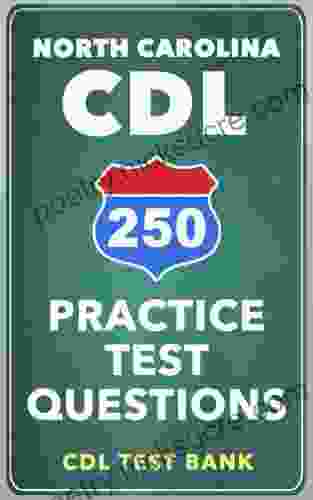
 Branden Simmons250 North Carolina CDL Practice Test Questions: Your Passport to CDL Exam...
Branden Simmons250 North Carolina CDL Practice Test Questions: Your Passport to CDL Exam... Julio CortázarFollow ·16.1k
Julio CortázarFollow ·16.1k Junichiro TanizakiFollow ·17.4k
Junichiro TanizakiFollow ·17.4k Jay SimmonsFollow ·19.6k
Jay SimmonsFollow ·19.6k Duncan CoxFollow ·15.6k
Duncan CoxFollow ·15.6k Samuel Taylor ColeridgeFollow ·12.2k
Samuel Taylor ColeridgeFollow ·12.2k Damon HayesFollow ·8.1k
Damon HayesFollow ·8.1k W.B. YeatsFollow ·5.2k
W.B. YeatsFollow ·5.2k Mikhail BulgakovFollow ·11.6k
Mikhail BulgakovFollow ·11.6k

 Aldous Huxley
Aldous HuxleyMorgenstern: A Classic Tale of True Love and High...
Morgenstern is a...

 Beau Carter
Beau CarterThe Oasis Guide to Asperger Syndrome
What is Asperger Syndrome? Asperger...
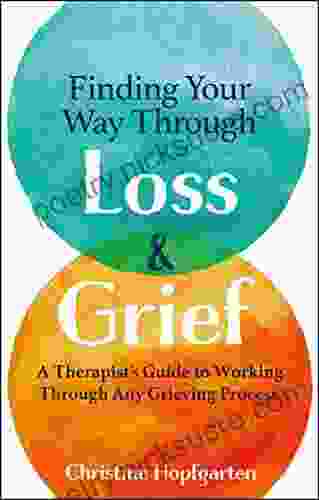
 Chadwick Powell
Chadwick PowellFinding Your Way Through Loss Grief: A Therapist S Guide...
Grief is a natural human emotion that we...
4.6 out of 5
| Language | : | English |
| File size | : | 26459 KB |
| Text-to-Speech | : | Enabled |
| Screen Reader | : | Supported |
| Enhanced typesetting | : | Enabled |
| X-Ray | : | Enabled |
| Word Wise | : | Enabled |
| Print length | : | 481 pages |


